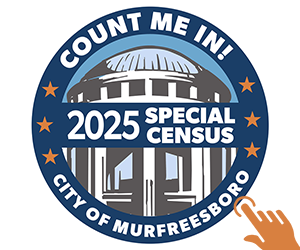SEGMENT ONE: LIVE and on phone
GUEST [BY PHONE]: Dr. Louis Kyriakoudes, director of the Albert Gore Research Center He is the man who has agreed to accept the gift of the WGNS sound and news files for the Gore Center.
TOPIC: Gore Center initiatives
Dr. Louis Kyriakoudes (pronounce Karia koo des) is professor of history and director of the Albert Gore Research Center at MTSU. The Gore Center is an archive that documents Tennessee’s political and social history. It is named for Senator Albert Gore, Sr., MTSU class of 1932, the father of former Vice President Al Gore. Today, Dr. “K” as he ins know on campus is going to tell us about the fascinating history preserved at the Gore Center, and how we in the community can access it.
- As history happens before our eyes in demonstrations across the country and in local communities, MTSU’s Albert Gore Research Centeris reaching out to obtain fragments of this history for preservation.
The historical repository of numerous collections of physical and digital documents, audio, video, photos, placards and memorabilia is asking the public for donations of similar artifacts used in recent Black Lives Matter protests against police brutality and Confederate names and monuments.
- The Gore Center just acquired a collection — still unprocessed — donated by Cecil Elrod. His grandfather founded WGNS, and the collection contains some historical material documenting the early history of the station.
- The Gore Center been communicating with Bart Walker about WGNS donating its digital news archive to the Gore Center. These are recordings of news broadcasts going back about fifteen years. A very important local history collection.
With Donna Baker, university archivist, and Sarah Calise, archivist of political and regional collections, Kyriakoudes maintains numerous collections. These include not only the official papers of former U.S. Sen. Albert Gore, but also state legislators’ papers and seven collections of Congressional papers.
SEGMENT TWO – LIVE in studio
GUESTS: Cynthia Chafin, associate director of the MTSU Center for Health and Human Services
TOPIC: A national pilot website called “Campus Diaries: Behind Every Smile”
The MTSU Center for Health and Human Services, in partnership with UNTOLD Originals, has created the national pilot site for “Campus Diaries: Behind Every Smile,” a web portal for students to submit “diary entries” anonymously to help them feel less isolated and to enable them to share the ways they face their challenges.
A global storytelling movement that gives voice to the untold narratives of humanity, the UNTOLD project gives voice to a wide variety of experiences and vulnerabilities with the goal of bringing people together through what they share.
When COVID-19 first came to dominate the national and international conversation in March 2020, MTSU students were asked to submit posts to the “Campus Diaries” web portal. The project is ongoing with a film documentary and a podcast in the works and a photography exhibit planned for the MTSU campus according to health protocols.
Learn more: https://mtsunews.com/campus-diaries-cchs-untold-originals/
SEGMENT THREE – LIVE in studio
GUEST: Dr. Ben Stickle, associate professor of criminal justice administration
TOPIC: Research paper titled “Crime Rates in a Pandemic: the Largest Criminological Experiment in History”
Changes brought about by the COVID-19 pandemic are prompting an MTSU professor to reconsider the way crime statistics are analyzed.
In a research paper published in the American Journal of Criminal Justice, Ben Stickle, an associate professor of criminal justice administration, posits that the novel coronavirus tragedy presents a unique opportunity for a “randomized control trial.”
“Crime Rates in a Pandemic: the Largest Criminological Experiment in History” was co-authored by Stickle and Marcus Felson of Texas State University in San Marcos, Texas, and published in June 2020 by the American Journal of Criminal Justice.
Stickle and Felson advocate considering crime data from the onset of the pandemic in terms of time periods that correspond to lifestyle differences.
“How we spend our time, our routine activities, is really what’s shifted,” Stickle said.
Typically, other variables such as race, gender and income would carry more weight in crime data analysis. However, Stickle and Felson divide the early stages of the pandemic into seven periods from February to May 2020 for assessing crime statistics. The second period, from mid-February to mid-March is significant because that’s when some cities and states began to issue “stay-at-home” orders.
Learn more: https://mtsunews.com/pandemic-crime-statistics-stickle-july20/
More In Depth: https://link.springer.com/article/10.1007/s12103-020-09546-0



